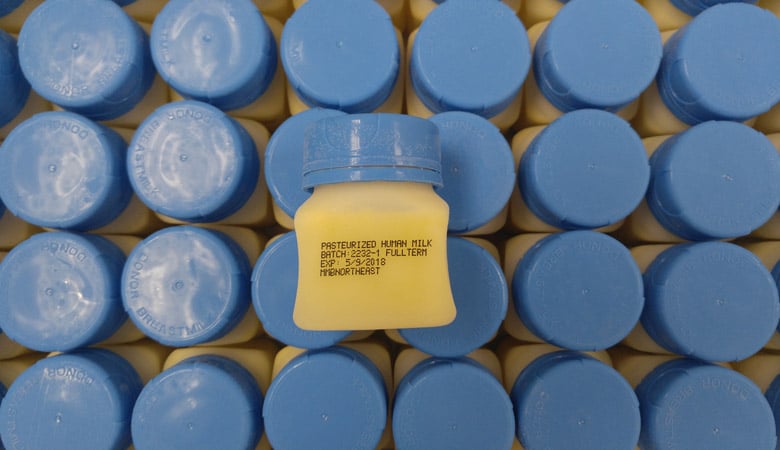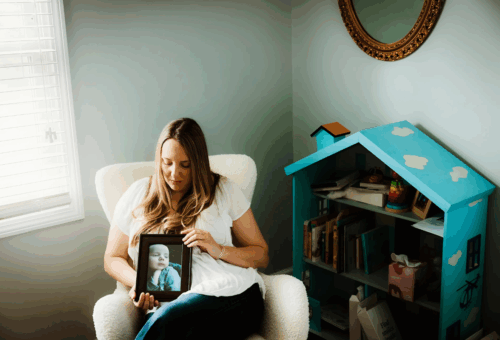By Sybil Sanchez
When mothers choose to donate milk to Mothers’ Milk Bank Northeast, they are ensuring that their milk is given to the neediest babies. Use of human milk as medicine and as a bridge to breastfeeding for healthy infants has more than doubled in recent years. Yet along with increasing demand comes interest in the market for human milk. Mothers have many choices for sharing their extra milk and sometimes question the route of a milk bank like ours.
Committing to our rigorous, nonprofit screening process ensures that pasteurized donor human milk is sent to the neediest babies in over 80 hospitals in 13 states. In this article by the Atlantic, “Should Women Be Paid for Donating Their Breast Milk?,” our milk bank director, Naomi Bar-Yam, discusses the importance of expanding the supply of breast milk donations through outreach and education, along with how using donor milk helps promote a culture of breastfeeding.
“As hospitals use donor milk in the NICUs, over time they need less donor milk.” This has to do with those hospitals’ newfound veneration of the bodily fluid, Bar-Yam explains. Both the staff and the parents learn the value of breast milk, and they work harder to support successful lactation with new parents—thus decreasing the amount of donor milk they need. “Just the very fact of having the milk there,” she says, “is a very important message.”
We are grateful to the altruistic moms who make the loving choice to donate to Mothers’ Milk Bank Northeast. As one donor in the article states, “If someone else didn’t donate, it wouldn’t have been available for my daughter. I want to help someone else’s baby the way that they helped my baby.”
Screening to become a breast milk donor is done through an easy four-step process. Once accepted for donation, milk can be shipped door-to-door or through one of our donor milk depots throughout the Northeast.









